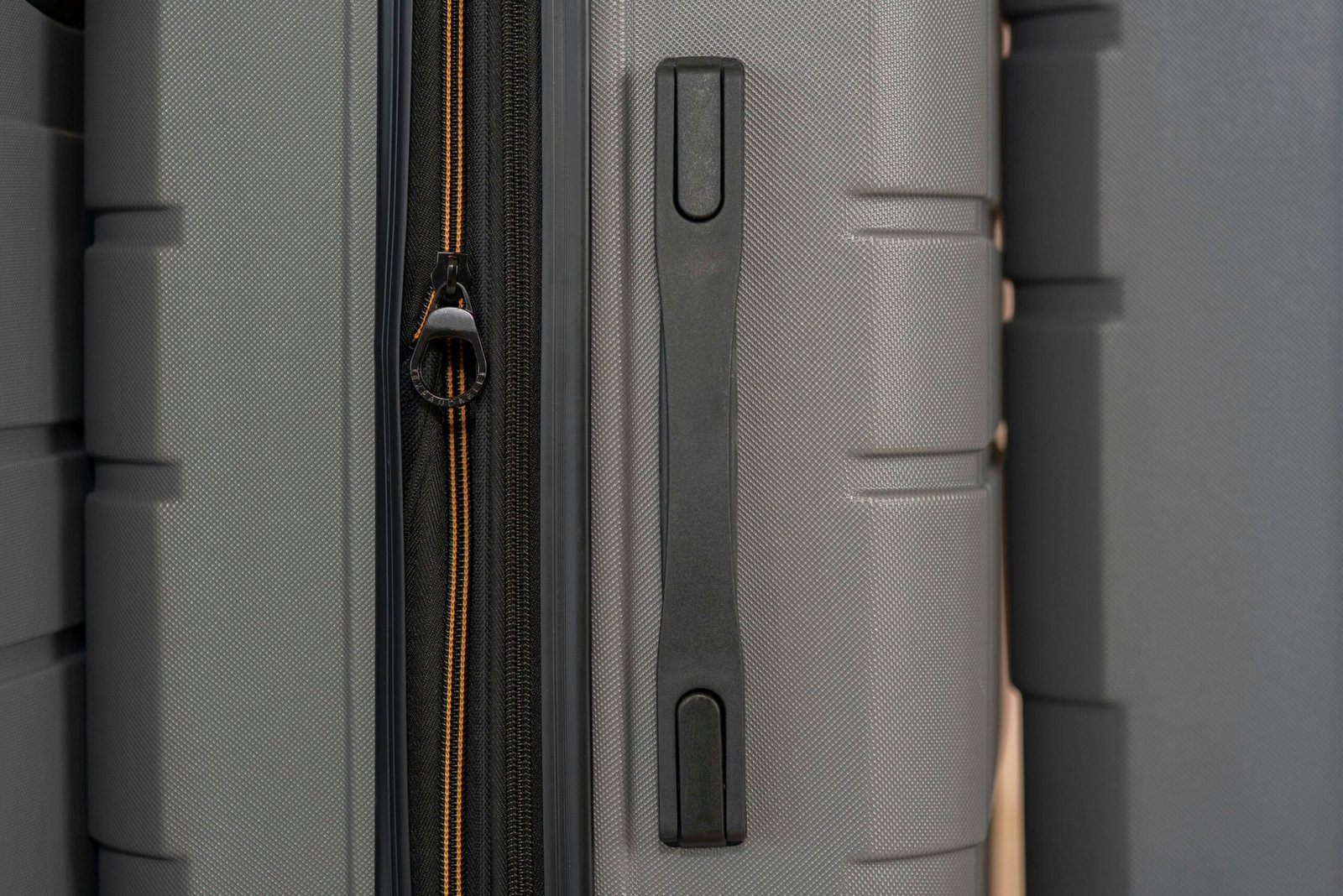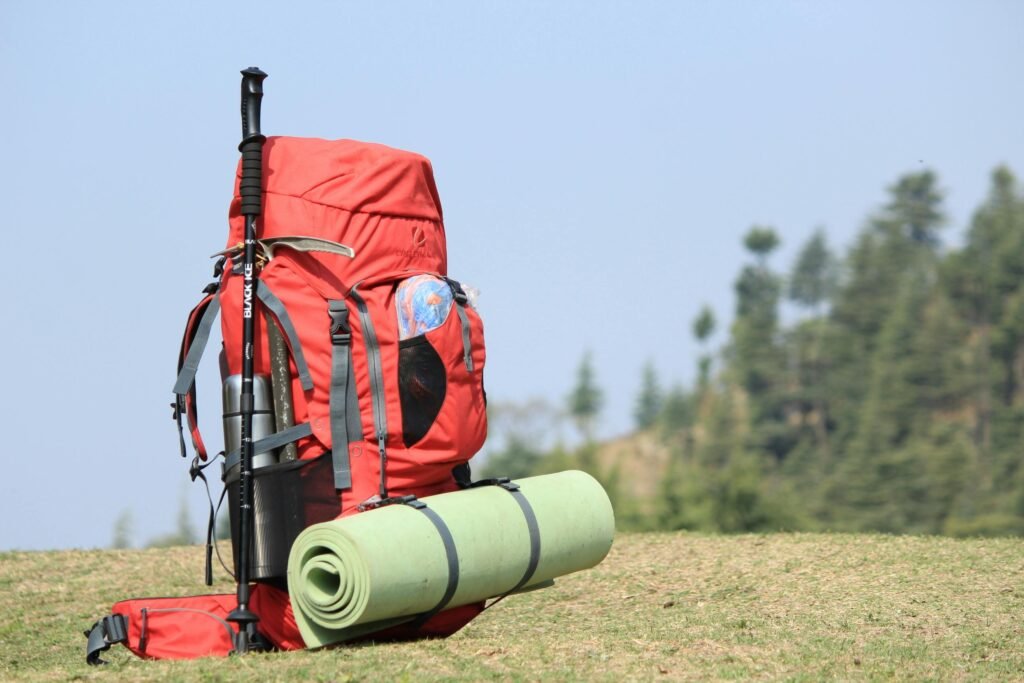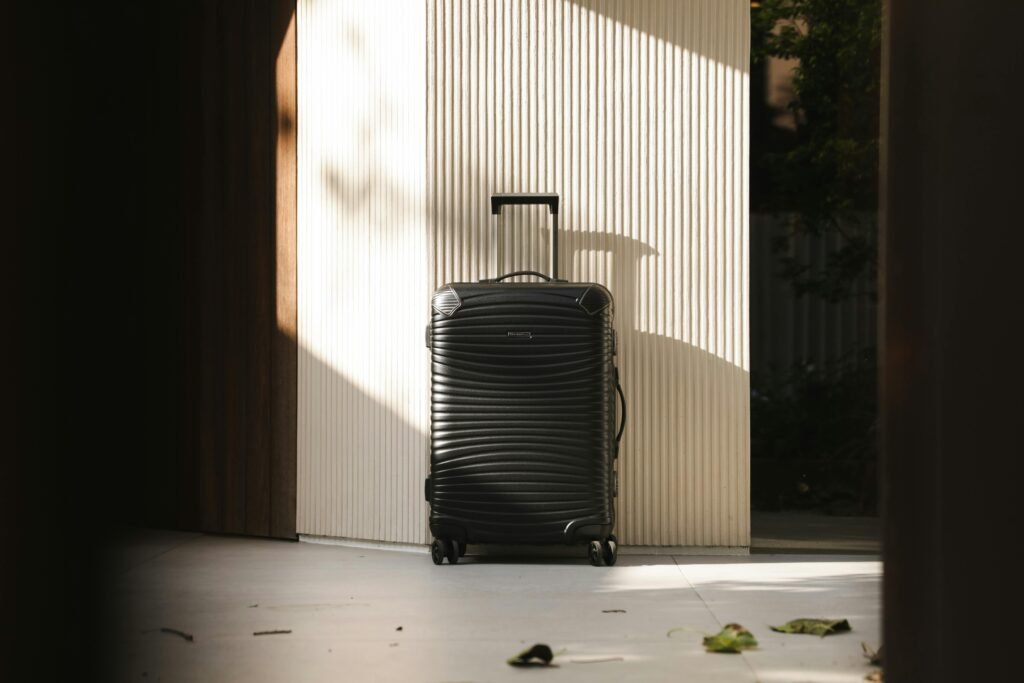Introduction to Travel Gear
When it comes to embarking on a journey, the selection of appropriate travel gear is crucial for optimizing the overall experience. The right luggage can significantly influence not only the ease of transport but also the comfort and organization of personal belongings during the trip. Travelers often find themselves debating between two primary options: suitcases and backpacks. Each type of travel gear presents its unique set of advantages and disadvantages, catering to varying needs and preferences.

The choice of luggage is influenced by several factors, including the destination, duration of the trip, and planned activities. For instance, a suitcase may be better suited for urban adventures where smooth surfaces allow for easy wheeling, while a backpack might excel in scenarios involving uneven terrain or a need for hands-free mobility. Furthermore, the nature of one’s travel—be it leisure, business, or adventure—also plays a significant role in determining the most suitable form of luggage.
Understanding the distinct characteristics of suitcases and backpacks is essential for making an informed choice. Suitcases typically offer structured storage, making organization straightforward with designated compartments and easy access to items. Conversely, backpacks provide flexibility and comfort, often equipped with ergonomic straps and the ability to carry heavier loads effectively. The decision also involves personal style considerations, as some travelers may prefer the sleek appearance of a suitcase while others might opt for the casual appeal of a backpack.
In the following sections of this blog post, we will delve deeper into the advantages and disadvantages of both suitcases and backpacks. This exploration will allow travelers to thoughtfully assess their own needs and preferences, ultimately guiding them toward the best luggage choice for their next adventure.
Understanding Suitcases
When planning a journey, choosing the right luggage is essential, with suitcases being a popular option for many travelers. Suitcases come in various designs, primarily categorized into hard-shell and soft-shell types. Hard-shell suitcases are constructed from rigid materials, offering enhanced protection for fragile belongings. Their solid exteriors often resist scratches and impacts better than their soft-shell counterparts, making them ideal for individuals traveling with delicate items such as electronics or glassware. In contrast, soft-shell suitcases are made from flexible materials like nylon or polyester, which tend to be lighter and more adaptable in different situations.
One key benefit of using a suitcase is the ease of organization it provides. Most suitcases include compartments, pockets, and dividers that help travelers keep their items neatly arranged. This structured layout allows for efficient packing and quick access to essentials, which is particularly advantageous during lengthy trips or airport layovers. Additionally, suitcases are available in a variety of sizes, catering to short getaways and extended travel alike. The diverse range of options—from compact carry-ons to large checked luggage—ensures that every traveler can find a suitcase suited to their specific needs.
However, there are notable drawbacks associated with suitcase use. One significant concern is mobility; suitcases, particularly larger models, can be cumbersome to maneuver through crowded airports or uneven terrains. Additionally, while many suitcases are equipped with wheels, some travelers may find them heavier than backpacks, especially when extensive walking is required. Weight can be a considerable factor, as travelers must also adhere to airline regulations regarding luggage limits. Therefore, while suitcases offer numerous advantages in terms of organization and protection, it is crucial to consider their potential drawbacks before making a selection for your next trip.
Exploring Backpacks
Backpacks have become increasingly popular travel companions due to their remarkable versatility and practicality across various travel scenarios. Unlike traditional suitcases, backpacks offer a more dynamic approach to mobility, allowing travelers to navigate through bustling airports, crowded streets, and rugged terrains with ease. The ergonomic design of backpacks ensures comfort during extended periods of wear, distributing weight evenly across the shoulders and back, thus minimizing the strain associated with carrying heavy loads.
One of the standout features of a backpack is its hands-free convenience, enabling travelers to maintain balance and freedom of movement in their daily activities. This practicality becomes especially evident when embarking on outdoor adventures, such as hiking or camping, where unencumbered hands can be crucial for safety and performance. Moreover, many backpacks come equipped with various compartments and pockets, which facilitate organization and quick access to essential items.
Backpacks are available in various styles tailored to different travel needs. Daypacks are smaller, ideal for short excursions or as carry-ons, providing enough space for necessities such as water bottles, snacks, and personal items. On the other hand, larger travel backpacks are designed for longer trips and often feature ample storage capacity, allowing travelers to pack clothing, gear, and other essentials comfortably. Some models even incorporate additional features like hydration systems, adjustable straps, and weather-resistant materials to enhance functionality.
However, despite their advantages, backpacks do have limitations. Packing capacity can sometimes fall short compared to suitcases, particularly for longer journeys that require bulkier items. Furthermore, organization can be a challenge with larger backpacks, as items may become difficult to access if not packed strategically. Overall, the choice of a backpack as a travel option can greatly depend on individual preferences and the specific travel circumstances.
Suitcase Advantages for Travelers
When planning a trip, choosing between a suitcase and a backpack often depends on the nature of the journey. For travelers embarking on business trips, a suitcase is frequently considered a more practical option. The structured design of a suitcase allows for securely transporting suits, formal wear, and essential documents, ensuring that they remain wrinkle-free during transit. This advantage is particularly valuable for professionals who prioritize maintaining a polished appearance while traveling for meetings or conferences.
Family travel is another scenario where a suitcase can significantly enhance the overall experience. With the need to pack for multiple individuals, a suitcase offers ample space and organization. The compartmentalized sections allow families to separate clothing, toiletries, and children’s items, making it easier to access essentials without rummaging through the entire bag. This organization minimizes stress during transitions, such as hotel check-ins or airport security checks. Furthermore, the ability to roll a suitcase rather than carry a backpack can reduce physical strain, particularly for those with young children in tow.
For longer vacations, a suitcase often provides the necessary convenience and functionality that travelers need. With a greater capacity, a suitcase allows for more extended packing options, including bulkier items such as shoes or jackets, without overwhelming the traveler. This capacity to pack everything in a single, manageable piece is critical for longer stays, where wardrobe changes are frequent. In addition, many suitcases come equipped with built-in organizational features, such as straps and zippered compartments, which enhance packing efficiency. These characteristics make the suitcase not only a practical choice but also a preferred companion for various travel needs.
Backpack Advantages for Travelers
When it comes to choosing between a suitcase and a backpack for traveling, the versatility and convenience of a backpack often make it the superior choice for various types of journeys. Particularly favored for hiking trips, backpacking adventures, and spontaneous city explorations, a backpack offers several distinct advantages that cater to dynamic travel styles.

One of the most significant benefits of using a backpack is its lightweight design. Travelers often find themselves traversing uneven terrains or navigating through bustling urban environments, where a bulky suitcase can become cumbersome. Backpacks distribute weight evenly across the body, allowing travelers to move freely and comfortably while rarely feeling the burden of their belongings. This is especially important for those who engage in activities like hiking, where the ability to navigate steep trails and rugged landscapes is crucial.
Moreover, backpacks are designed with practicality in mind. Most models come with multiple compartments, making it easier to organize essentials like water bottles, snacks, and travel documents without rummaging through all items. For instance, a traveler exploring a new city can have quick access to their camera or map, facilitating a more enjoyable and spontaneous experience. In addition, many backpacks are water-resistant or equipped with additional protective features, ensuring that valuable items remain safeguarded from unexpected weather changes.
In real-life scenarios, many travelers have shared their preference for backpacks over suitcases due to the ease of transport. For example, a backpacker on a popular trail in the Rockies found that climbing steep ascents was far more manageable with a backpack, as opposed to hauling a suitcase behind them. Similarly, urban explorers may report being able to hop on and off public transport or navigate through crowded streets much more efficiently when armed with a well-equipped backpack.
Ultimately, the adaptability and lightness of a backpack make it an advantageous choice for travelers who embrace spontaneity and adventure in their journeys.
Comparative Analysis: Suitcase vs. Backpack
When contemplating travel gear, the choice between a suitcase and a backpack can significantly influence the overall experience of a trip. Both options serve the fundamental purpose of transporting belongings, yet they do so with varying features and drawbacks. This comparative analysis sheds light on crucial factors such as comfort, weight, capacity, suitability for different terrains, and ease of access.
Comfort is paramount, particularly during long periods of transportation. Backpacks are typically more comfortable for navigating crowded areas or uneven surfaces, as they distribute weight evenly across the shoulders. This feature allows for easier movement, whereas a suitcase, particularly one without wheels, can become cumbersome when traversing stairs or rough terrains. In contrast, a wheeled suitcase excels in comfort during airport travel on smooth surfaces, ultimately minimizing strain.
Weight is another critical consideration. Generally, backpacks are lighter than their wheeled counterparts, which can make them more manageable for extended trips where minimizing personal load is necessary. While suitcases do offer a robust construction that may protect fragile items, this added weight can become a burden in environments demanding mobility.
Capacity comes into play regarding how much one can pack. Suitcases often provide more space, making them preferable for longer trips or for carrying larger items. Conversely, backpacks may offer a smaller capacity, which encourages more selective packing and potentially prevents overpacking. Travelers should weigh their packing habits against the type of trip being undertaken when making this choice.
Suitability for different terrains significantly aligns with the selection between these two options. Backpacks are inherently versatile, adapting well to a variety of landscapes, from urban settings to nature trails. Meanwhile, suitcases thrive in stable environments, particularly in hotels or airports.
Finally, ease of access becomes paramount when evaluating the practicality of each option. Backpacks allow for quick access to belongings stored in various compartments, while suitcases often require the user to open the entire bag to retrieve items situated at the bottom.

This analysis underscores the importance of aligning personal needs and travel styles with the characteristics of either a suitcase or a backpack, facilitating informed decision-making for potential users.
Personal Travel Style Considerations
Choosing between a suitcase and a backpack often depends on an individual’s personal travel style and preferences. Understanding your travel habits, destination type, trip duration, and planned activities can significantly influence your choice of luggage. For instance, if you are inclined towards long-term travel, especially to urban destinations, a suitcase might be more suitable. Suitcases generally offer more space and compartments, making them ideal for carrying multiple outfits and travel essentials. Additionally, this type of luggage can be easier to maneuver on city streets with smoother surfaces.
On the other hand, if your travel itinerary includes outdoor adventures, hiking, or trips to less accessible locations, a backpack may serve you better. Backpacks are designed for mobility—they allow for hands-free transportation and are often more adaptable to uneven terrains and crowded spaces. Moreover, they encourage a more minimalist packing strategy, which can be beneficial for spontaneous travelers who prefer to pack light and stay mobile.
Another consideration is the duration of your trip. Shorter trips may find a backpack more manageable, while longer vacations could necessitate the structured organization that a suitcase provides. Additionally, personal preferences play a critical role; some travelers appreciate the ease and access of a backpack, while others may prefer the organized layout and formal appearance of a suitcase. Reflecting on these aspects will guide you in selecting the most appropriate luggage type that complements your travel style. Ultimately, understanding how these variables interact with your travel preferences will lead you to make a more informed decision for your next trip.
Recommendations Based on Travel Types
When planning a trip, the type of luggage chosen can significantly influence the overall travel experience. Different types of travelers face unique challenges and demands, making the decision between a suitcase and a backpack critical to a successful journey. Below are tailored recommendations depending on specific travel scenarios.
For solo adventurers, who often prioritize mobility and flexibility, a backpack is usually the more suitable option. Backpacks offer hands-free convenience, allowing travelers to navigate crowded markets, public transportation, or uneven terrain without hassle. Moreover, most backpacks come with various compartments, aiding organization without the bulk of a suitcase. A durable, weather-resistant backpack could serve well in diverse environments, accommodating both essential gear and personal items in a compact manner.
Families traveling with children, on the other hand, may find a suitcase more beneficial. A suitcase provides ample space for packed essentials, toys, and other family necessities which are crucial for making the journey comfortable. Moreover, hard-shell suitcases can be more secure and protective of delicate items. Families also have the added convenience of using wheeled suitcases, making it easier to navigate through airports or hotels while managing children and belongings.
Business travelers often require an efficient blend of form and function. A carry-on suitcase, combined with a laptop compartment, serves as an ideal solution for transporting both clothing and professional equipment such as laptops or presentations. Its structured form ensures that items remain wrinkle-free, especially if a business meeting or event is on the agenda shortly after arrival.
Digital nomads, who prioritize both versatility and mobility, benefit from a combination of a backpack and a smaller suitcase. This approach allows them to carry necessary tech equipment while still being able to access personal items easily. Stylish and functional backpacks specifically designed for travelers can also hold laptops and accessories, catering to needs as a mobile worker while traveling between various destinations.
Conclusion: Making Your Choice
Choosing between a suitcase and a backpack is a decision that ultimately hinges on your unique travel style and requirements. Each type of luggage offers distinct advantages that cater to different preferences and circumstances. For travelers who prioritize organization, ease of access, and a more formal travel aesthetic, a suitcase may be the ideal option. Suitcases typically provide ample storage space, structured compartments, and wheels for effortless maneuverability, making them a popular choice for business trips or leisurely vacations where toting heavy items is minimized.
Conversely, if your journey leans towards adventure, spontaneous excursions, or destinations involving rugged terrains, a backpack may suit you better. Backpacks generally allow for greater mobility, ease of transport, and versatility, making them perfect companions for hiking trips, backpacking tours, or even city explorations. The hands-free nature of backpacks can also prove advantageous when navigating crowded locations or utilizing public transportation.
Furthermore, the type of journey you embark upon may influence your packing style, which should also weigh heavily on the decision-making process. Consider the duration of your travels, the climate, and the activities you plan to engage in. Long-term travelers might find themselves favoring backpacks for their adaptability, while those embarking on short getaways may appreciate the refined nature of a suitcase. Ultimately, understanding your specific travel needs will empower you to select the most appropriate option.
Both suitcases and backpacks have their advantages and disadvantages. By reflecting on your travel habits and the settings you’ll be visiting, you can make a more informed decision and choose the luggage that aligns perfectly with your adventure.






